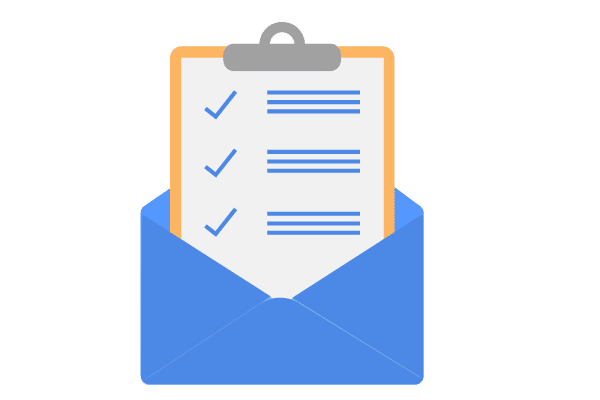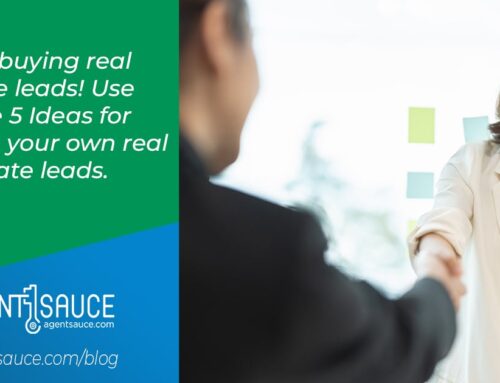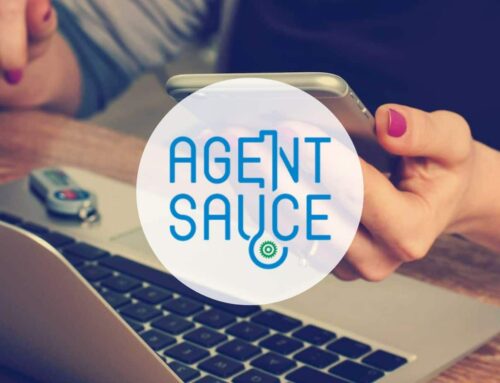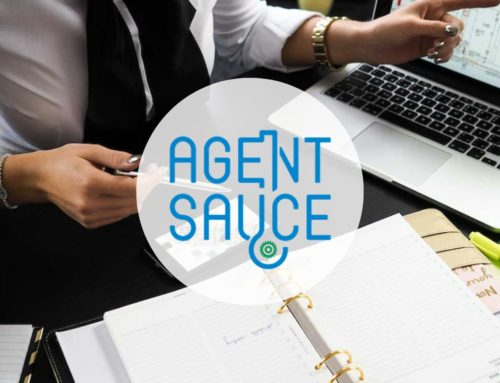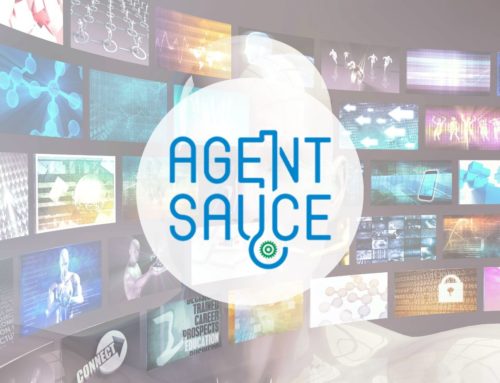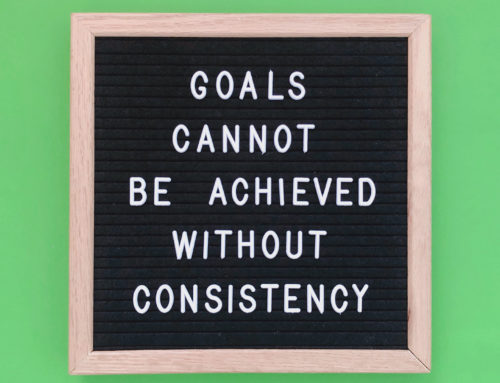Growing Your Real Estate Email List Podcast
Doug and I had a great talk about growing your real estate email list. We discussed various real estate marketing strategies as well as technologies that can be used in growing your real estate email list.
Show Notes
Pop up for New Visitors/Exit Intent Pop up [1:20]
Easy close of Pop up [2:50]
Valuable Free Offer [5:25]
Independent Subscribe Page [6:50]
Owning the audience [8:10]
Offline methods [8:45]
Single/Double opt-in [9:25]
Social Media to collect email addresses [10:45]
Buying a list [15:15]
Work with a partner [18:30]
Podcast Transcription:
Adam Small: Hi, Adam Small here with the Agent Sauce Real Estate Marketing Podcast. And with me today is Doug Karr of DK New Media.
Douglas Karr: This is getting to be a routine, huh?
Adam Small: I’m just saying it was supposed to be the Agent Sauce Podcast, but now, it’s the Adam and Doug Real Estate Marketing Podcast. So, anyhow … So, we’re about a month or so into the new year here and one of the things that I see a lot of agents really emphasizing now is how to grow their business and get really good results from this year and grow it quite a bit. They’re asking about growing their real estate email list. How do they increase the number of subscribers that they have in their real estate email list and that sort of thing? So, I thought it’d be a great topic, just to talk about different techniques and methods, both online and offline, of growing your real estate email list.
Douglas Karr: I like this topic.
Adam Small: I do, too. I thought it was a good one. We’ve been asked about it quite a bit lately. And it’s something that’s really evergreen, growing your real estate email list, and that it always applies. And that is … And it really is Cross-industry, too, because you can use any technique from … For any industry in growing your real estate email list, just about any, I should say. So, what’s the number one thing you do on the Marketing Tech Blog?
Douglas Karr: I would say the most active way of growing your real estate email list, our most active way of acquiring subscribers is that we do have a pop-up. And I’ll explain a couple of things. So, the pop-up is, basically, after a couple of seconds that a new visitor comes on the site, it’ll say … It’ll tell them, “Hey, don’t miss additional news.” We tell them a value that they’re gonna bring. You know, “Please subscribe.” And they can close out that if they want to. And then, we have another pop-up that is exit intent, it’s called. It’s basically someone starts to drag their mouse up and go over to the address bar, which is, basically, when you’re gonna click back, or you’re gonna go Google something, or whatever. This is a great way of growing your real estate email list.
Adam Small: So, it looks like you’re going somewhere else. You’re exiting the site.
Douglas Karr: Yeah, and when that happens, we do a pop-up as well. And say, “Hey.” And just one more reminder. So, I’d say that’s our … That’s where we get the most subscribers to our site, and I like that method just because it’s one, you’re putting it front and center to people that, “Hey, I do have a newsletter. I do have a real estate email list.” And you’re making it easy for them to opt out of it. A lot of people hate pop-ups, but they’re getting used to it. And then, the exit intent one, I really like, ’cause if they’re leaving, anyways, you might as well ask them if they want to subscribe.
Adam Small: Right, no harm in asking, right? As long as you make it easy for them to close it out. I’ve been on sites where something I find particularly offensive is where I can’t do anything other than what they want me to do.
Douglas Karr: Subscribe, yeah. Yeah, locking them down.
Adam Small: And I’m just not gonna do that. I actually have closed out my whole browser in order to avoid doing that myself. So, I think you’re right. The exit intent is always a great things as long as you provide a methodology for them to just ignore it and move on with their … Whatever they’re trying to do, right? So, okay. So …
Douglas Karr: And I’ll say on our blog, we get a few thousand visitors a day. We’ll probably get three to five people that subscribe a day, so that’s a nice …
Adam Small: Well, it’s 150 or so, 250 email addresses a month, right? Something along those lines, right?
Douglas Karr: Yeah, now we make sure that we put out good emails, too, so that we don’t lose them.
Adam Small: Oh, wow. That’s a whole different story, right?
Douglas Karr: But it really is. A lot of people pay so much attention to just growing your real estate email list that they don’t actually manage the list and put out good emails, right? Continue for that quality product, whether it be an email or your service that your providing, is essential in order to retain the customer base, in this case, subscriber list, right?
Adam Small: So, exit intent. And then, you said after a few seconds of onsite, the stuff will pop out.
Douglas Karr: Yeah, first … It’s a first visit pop-up.
Adam Small: Okay, so …
Douglas Karr: So, these … The software that’s out there that lets you do this, a lot of them have these … Basically, you write a bunch of rules and it’ll be like if it’s a first visitor, if they close it, don’t show it to them for another, let’s say, 30 days, or if they’re on their fifth page on the site, you might pop it up, or … And they let you test and do different things with them. And so, it … They’re pretty nice, the call to actions and conversion plug-ins.
Adam Small: Right, so there are a lot of options out there. And so far, as being able to target, not offensively target … So, every time you come to the site, it pops up when you’re up there.
Douglas Karr: Right, right, which is why you go buy on of the … You could either buy a service, or you could go buy a plug-in, or whatever. You don’t wanna … Something like this, unless you’re someone like Adam …
Adam Small: Who? No, I don’t do this.
Douglas Karr: You don’t wanna program this yourself.
Adam Small: No, I don’t wanna program this myself.
Douglas Karr: You don’t want it where every time someone opens a page it goes, “Bang, bang, bang.”
Adam Small: Right, it gets annoying. And people are like, “Okay, I’m just not going back because it’s a matter of fatigue.” Right? That’s interesting. So, exit intent. And then, new visitor. So, those are great things. Something that we do, right? Is what you might call a valuable free offer, right? And we put a little signup for them on the side of the site, and it says something along the lines of, “Hey, download our white paper, our PDF.” That sort of thing or even a five-week real estate email marketing course, right? And they put their email address, and their name in there. And then, they’re either sent a link to download or over the course of the next couple of weeks they get tips on real estate email marketing.
Douglas Karr: And that’s definitely … I’d say that’s the number two way of growing your real estate email list. Our number two is put an offer out there, so we trade email for something of value.
Adam Small: And it’s an interesting thing to define, “Something of value.” It doesn’t have to be an iPad, or a free gift, or item, or something like that, it can literally be your knowledge.
Douglas Karr: Well, yeah. For real estate agents it could be wall colors to avoid.
Adam Small: When trying to sell, right?
Douglas Karr: Yeah, stuff like that.
Adam Small: Well, I mean, you’re right. So, your tips to get your house ready for selling, or, “Hey, prepare yourself for the buyer. Are you pre-qualified? What are the interest rates right now?” That sort of thing, all can be used in growing your real estate email list. So knowledge is just as much a … Of value as an actual concrete item, is one of the things I would say.
Douglas Karr: A third method for growing your real estate email list, I think a lot of people miss is we actually have a subscribe page on our site. So, we have a page that basically says why you should subscribe, how often we send the email, what kind of information is gonna be in it. And we use that page on our calls to action for Facebook, Twitter. Like Facebook, you can actually put a button on your business page. And so, we’ll have a subscribe button on our business page and we can ask people to go straight to our subscribe page. And so, I’d really recommend people put a subscribe page on their site.
Adam Small: So, a dedicated subscribe page.
Douglas Karr: Yeah, even if they have a form on every single page to subscribe, I would still have an independent subscribe page because you can send that to people. You can put it in your email footer, you can put it on …
Adam Small: Right, you can use it as a landing page, right?
Douglas Karr: Exactly, that’s what you do.
Adam Small: That’s essentially what it is, what you said from the Facebook ads, or your Facebook page, or Twitter links, that sort of thing, right? So, it’s an opportunity to bring in other mediums into your site. And then, collect the data there, right? So, ’cause really you wanna drive everything back to your site. And so, you’re on it.
Douglas Karr: You really, really do want to do that. Everybody should be learning lessons over the last 10 years of Facebook changing the rules, and Google changing the rules, and everybody changing the rules. If you’re just speaking to people on Facebook, you don’t have access to those people on those Facebook user access, so having their email is the way that … It’s like having a phone number and email address. Now, you don’t have to have someone in between you guys.
Adam Small: A middle man, right? Somebody that’s brokering, moderating what you’re saying.
Douglas Karr: Yeah, you’re trying to make money off of it.
Adam Small: Exactly, how you’re reaching that audience, right? Okay, so cool. What do you … What about growing your real estate email list offline? I mean, what do you do in the way of offline stuff? On the top of my head, I know a lot of real estate agents when they’re holding open houses will have a sign in sheet and ask for an email address there. And that’s always a good way, and there’re automated ways of doing that work instead of a sheet that you physically sign. It’s an iPad, or something like that where they collect the data on the form.
Douglas Karr: In the end it’s the same thing. I’m aggressive that way. Almost every single person I meet that gives me a business card, I add them to our email list and it’s a single opt in. I don’t do a double opt in for people listing, that’s where I would add their email list. And then, we’re gonna email to confirm that they wanna … I do a single opt in and it’s … I was talking to someone the other day and double opt in is one of these things that … Email services love them.
Adam Small: Right, because it keeps their real estate email list really clean because it weeds out a lot of people that are just like, “I’m not bothering.”
Douglas Karr: But the problem is like, “Hey, Adam, nice to meet you.” And you give me your contact information, so I’m gonna contact you. I don’t come back and say, “Oh, well, thanks for your business card. Do you mind if I contact you?” The reason why you gave me the business card was to contact you.
Adam Small: Yeah, exactly. So you could reach me.
Douglas Karr: Yeah, so I’m pretty aggressive on that. I haven’t … I had one person complain and we have 60,000 on our list, and that one person was a deliverability guy at an email company.
Adam Small: Well, I guess that would explain that, right? So, yeah, okay.
Douglas Karr: Yeah, but I’m really aggressive on that front. I want … Look, it’s opt out. They can unsubscribe whenever they want.
Adam Small: So you absolutely include the opt out mechanisms, right?
Douglas Karr: Right, but my thinking is as soon as they get that first email, they’re gonna see something of value and they’re gonna go, “Wow, that’s a pretty good email. I’m gonna hang onto it.” And they’re gonna stay until … That’s what I’m hoping for, that’s why I make sure my email’s good. I will say, I get added to a lot of lists and I get that first email, and it’s a disaster and I unsubscribe immediately.
Adam Small: Right, right. Absolutely, so that’s interesting. So, that’s one method. What about using social media to collect email addresses for growing your real estate email list? And what I mean by that is I was just at a conference last week, and one of the vendors in there that was doing a presentation talked about how they could draw email addresses out of Facebook.
Douglas Karr: Oh, interesting. Yeah.
Adam Small: So, all your fans and that sort of thing. And they were making a really big deal out of being able to do that, like they were the only person in the world that could do that. Is that a good venue for pulling email addresses? Facebook, LinkedIn, that sort of thing?
Douglas Karr: So, everything that we’ve talked to until now, we had contact with the person, right? Either they visited our website, or we visited them and they gave us a business card, or they visit our social page, or whatever. When we start to get to the point where we haven’t actually met the person, in the … That would be this, or buying a real estate email list, or whatever.
Adam Small: We’ll touch on buying a list when growing your real estate email list in just a minute .
Douglas Karr: Yeah, but that’s, honestly, where you start running into quality problems and even making people upset. That … Even email where we get spammed all day and we’re starting to build up an immunity to it, if you will; but we still … It’s still an intrusion. And so, when I get an intrusion from a stranger, it’s more of an intrusion than when I get an intrusion from someone I met.
Adam Small: Right, right. Well, it’s definitely like, “Well, who is this person? Where did they come from? Why are they contacting me?” As opposed to, “Oh, I remember Doug, so let’s see what he’s got to say.” Maybe, right?
Douglas Karr: Right, the other problem that you can run into, whether you’re dealing with business people or you’re dealing with consumers is a lot of times, people have multiple email addresses as well. So, they use one for their Facebook, or they use one for their LinkedIn, or their LinkedIn one might be their business address. So, if you download their LinkedIn data and import it, now, you’re irritating them because you’re bothering them at work, or vise versa. So, you don’t know, too, which … What the right way to contact them is, so you run into that problem as well. The other one is just turnover on email, right?
Adam Small: Right, something like every six months an email address only lasts for six months and it’s hard for a lot of people in the business world to fathom that an email address can go bad in six months. I think that’s the last stat that I read, but I mean, you sit at your job and you work there so it’s hard for you to recognize that; but you got all your free services, Gmail, Hotmail, Yahoo, and those are the ones who are … That go bad so often, and a large part because people don’t even … Like Doug said …
Douglas Karr: Even business turnover, I think, is 30% in the year.
Adam Small: Right, but people will sign up for the free ones just to have a junk email address that they can put in there and not paying attention to. And they never log in, so after about six months or so, Yahoo, AOL, whoever it is kills the email address and you’re trying to send to them and it starts bouncing because they just don’t care. They’re not …
Douglas Karr: It just starts bouncing. Now, you’re talking of other problems that you’re gonna run into trying to send an email to your good people that do want the email.
Adam Small: Right, ’cause you’re creating problems with bounces, your reputation’s going down, that sort of thing. So …
Douglas Karr: I think the other part there is that I’m … When these guys talk about that they have these Facebook email addresses … Look, Facebook does not give those up, so they are getting them some other way that’s a little bit scary, and it might be … I’ll give you a perfect example is they might have some viral stupid contest that you get invited to on Facebook all the time and it … And people don’t even realize that when they hit the privacy button it asks them, “Will you let them get your email address?” And that’s the way these guys are getting those. Man, that is nasty. And so, I … that’s the other part of this is they’re … I can tell you that they are definitely violating Facebook’s terms of service if they’re going out and reselling those email addresses. And so, I … It’s just a shady way of … It’s not that it’s illegal, but it’s a shady, shady business.
Adam Small: Right, right, right. So, interesting. So, speaking of shady business practices there regarding emails, what about buying a list when growing your real estate email list? You touched on that earlier. Let’s wrap this up with your thoughts on buying a list and how well that works for you.
Douglas Karr: We’ve had … Honestly, we’ve had mixed results with it.
I’ll tell you where we’ve seen good benefits. We … A highly, highly targeted list, so it might be a job position of some sort, really tight geography, 10 miles around Indianapolis or something like that, demographic. You’re picking multiple variables for their demographics and everything else, and you get that list.
Now, here’s what I’ll say right off the bat is you’re gonna get angry people if you email that list. They’re gonna be upset that, “How did you get my contact information?”
The second part of it is that you’re gonna get a lot of bad email addresses, so you should run them through. There are services like this one we use called, “NeverBounce”, and you can run them through and they’ll try to get all the bad email addresses out first. The ones that are leftover, can you create a relationship with those or not?
I mean, personally, when I think about my real … If I had a real estate agent that just spammed me out of the blue because they got my information somewhere, I might resent that a little bit. I might not welcome that opportunity, so if … So, I’m in … So, people know …
Adam’s the real estate guy. I’m just a marketing tech guy.
When I see some companies, and use, and it works very well because they have some kind of … Maybe they have some kind of tool and they’re trying to get that tool out to a very specific job title.
Adam Small: Very narrow.
Douglas Karr: And because the tool is so cool, people actually do like hearing it; but in this case where it’s really a relationship building …
Adam Small: So, by and large, not a good idea. It’s really not a good idea, right?
Douglas Karr: Not if you’re … Well, real estate is really a relationship industry. It’s all about trust. And so, if the first meeting is that you …
Adam Small: That you bought their email addresses, man.
Douglas Karr: And the trust … I don’t know that the trust is there.
Adam Small: It’s not gonna help you establish that trust. I would agree. The other thing that I would say regarding buying email lists, being on the technical side of it, watching and having seen a few people go through and upload, obviously, bought lists into our system, the bounce rate is incredible. The spam reporting rate is even higher and the reputation … It just hurts it all around. That’s one of the reasons why we always do the first couple of sends for a new agent, a new customer of ours, through some servers that are much wider spread, so that it doesn’t impact everybody and hurt our good sending servers because we just never really see it be much of a success from a real estate perspective. It always hurts the deliverability. I would not recommend it for growing your real estate email list.
Douglas Karr: I would … Here’s a bonus tip for your audience, if they’re tempted at going and getting a list, here’s the way I would do it. I would look for a partner, rather than a list broker.
Adam Small: So, perhaps, working with a mortgage company or a title services company, something along those lines that has, hopefully, an established relationship with their subscribers.
Douglas Karr: Because your first email could literally be …
Adam Small: Rough and slow.
Douglas Karr: “We’re working with this mortgage company and I wanted to welcome and introduce you … I’d like you to sign up for our newsletter.” Or whatever, and I’m just throwing that off the top; but that is actually a really good way of … Because if you have the trust of the mortgage company already, now, if the mortgage company is recommending a real estate agent, there’s already … There’s a transfer of trust there that people might believe.
Adam Small: Right, right. So, you’re basically leveraging the trust in the other organization for it to gain the acceptance of the subscriber, right? Not a bad idea at all. The one thing I would say in regards is to make sure that if you do something along those lines with a mortgage, or a title company, that sort of thing, that you stay with … What’s that?
Douglas Karr: Permissions, regulations …
Adam Small: Permissions. Stay within the regulations just … I know that there’s definitely regulations regarding marketing, co-marketing, that sort of thing, so make sure you stay there. Stay good there.
Douglas Karr: This is when we say all of the advice given here on the Agent Sauce Podcast …
Adam Small: Right, is not legal advice. Exactly, yes.
Douglas Karr: Please, contact your attorney.
Adam Small: Exactly, so alright. Well, hey, Doug, thanks for joining us today. I really appreciate it. If you guys have any questions, wanna learn more about growing your real estate email list or Agent Sauce, feel free to contact us at agentsauce.com, or you can call us at 877-230-0023, or text SAUCE to 71813.

